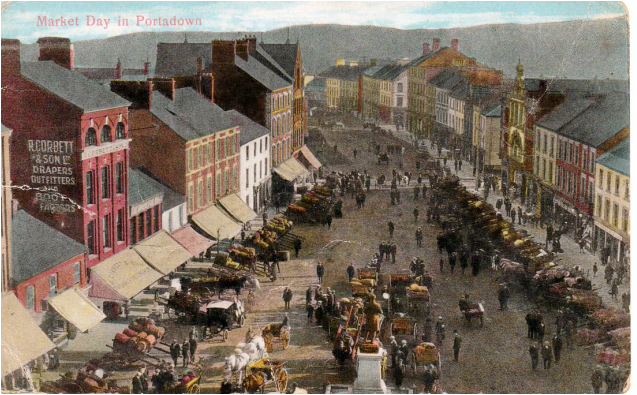—"The congregation, was in a most unsatisfactory state; in fact, altogether Laodicean."
One would not be surprised if the above two comments were quotes by ministers labouring in the year 2015–2016, but they are in fact comments made by two individual ministers in the years 1858–1859, in Ulster, Ireland.
A third able minister said:
—"Hitherto, our condition was deplorable. The congregation seemed dead to God, formal, cold, prayerless, worldly, and stingy in religious things. Twice I tried a prayer-meeting of my elders, but failed; for after the fifth or sixth night I was left alone. All along I believed that the faithful use of the means of grace would be followed by their effects, as certainly as the tillage of a field is followed by a good crop, or as diligence in any profession is attended with success; and great was my disappointment, as year after year passed, yet still no fruit; no outpouring of the Spirit. I wondered and was grieved at what seemed so mysterious. What alarmed me most was the indisposition, almost hostility, of the people to meetings for prayer. They seemed mostly to think that they were well enough, and that I was unnecessarily disturbing them. I had never been so desponding or distressed as during the weeks immediately preceding the awakening. I had almost ceased to hope. I felt as if I was almost alone, no one mourning or praying with me; and I told my people I was appalled at their determination to have no prayer-meetings, and that we would not have a drop of the shower of grace which was going round, but would be left utterly reprobate."
This paints a depressing and hopeless picture of the spiritual state of the land. BUT amidst such darkness there were those scattered across the land who prayed faithfully for a mighty work of the Holy Ghost.
The famed Methodist preacher William Arthur wrote a book in 1856, called, The Tongue of Fire which was about the true power of primitive Christianity. In its first three years it went through 18 re-printings which shows that there was a real hunger for true powerful New Testament Christianity.
As we scan the spiritual condition of the late 1850's we see that there was little to encourage genuine believers who had prayed and laboured hard for many years with little result or change to the spiritual condition. Many ministers, like the three quoted above, were discouraged with a seeming fruitless ministry.
It is at times like this, when all things spiritual are at the lowest of low ebbs, that the hungry believers cry out to God to send Revival and He in His faithfulness comes in power, sweeping souls into the Kingdom of God.
Not far from Ballymena, in county Antrim, is a small village called Kells. Here in 1859, God found Himself four weak, foolish, despised vessels through whom to work. God bypassed the great religious establishments as well as the ministers of religion and found four sinners that He saved and filled with faith and a spirit of prayer for revival.
Through the work of God in the hearts of these four new converts who were moved to seek God in prayer, 100,000 souls came to Christ in one year. This is the extraordinary story of this stirring, reviving and outpouring of the Spirit of God that came to be known as 'The 1859 Ulster Revival.' [TO BE CONTINUED]
NEXT WEEK Read about these four new converts who were used to see the beginning of the 'The 1859 Ulster Revival' as God's vessel.

 RSS Feed
RSS Feed